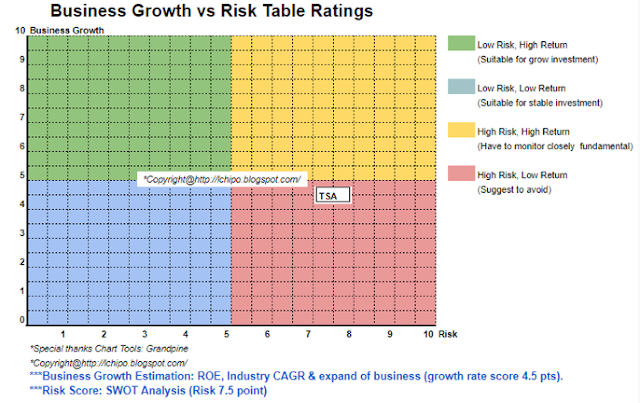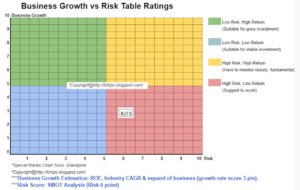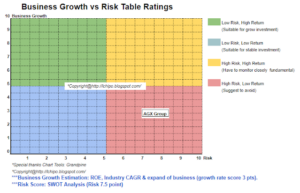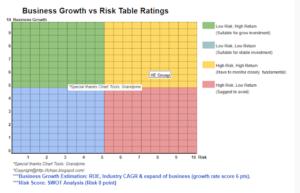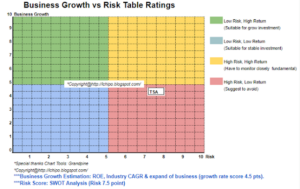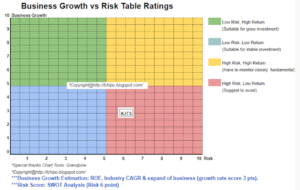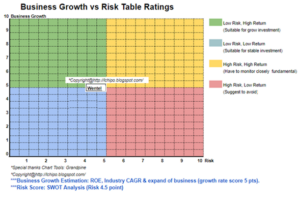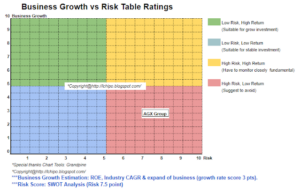In terms of top performers, last year
was a pretty great year for Australian IPOs. At time of writing there are five companies
that listed in 2017 that are more than 500% up on their listing price. The
companies provide a good insight into the current zeitgeist of the Australian
micro-cap sector. There are two infant formula companies, one exploratory mining
company, one medicinal cannabis company and one 3D printing company.
was a pretty great year for Australian IPOs. At time of writing there are five companies
that listed in 2017 that are more than 500% up on their listing price. The
companies provide a good insight into the current zeitgeist of the Australian
micro-cap sector. There are two infant formula companies, one exploratory mining
company, one medicinal cannabis company and one 3D printing company.
| Company | Listing price | Current price | Return |
| Wattle Health | $ 0.20 | $ 2.26 | 1030% |
| Cann Group |
$ 0.30 | $ 2.75 | 817% |
| Bubs | $ 0.10 | $ 0.72 | 620% |
| Titomic | $ 0.20 | $ 1.22 | 510% |
| Cobalt blue | $ 0.20 | $ 1.40 | 600% |
While initially you might think trying
to find common ground between such a diverse set of companies would be
difficult, there is one thing that all these companies share; low or
nearly non-existent receipts from customers. The five companies listed above
have a combined market capitalisation of 960 million, yet their combined
receipts for the first six months of FY18 is only 2.8 million. That’s an annualised price to revenue ratio
of 172, a ridiculous metric by any stretch of the imagination.
to find common ground between such a diverse set of companies would be
difficult, there is one thing that all these companies share; low or
nearly non-existent receipts from customers. The five companies listed above
have a combined market capitalisation of 960 million, yet their combined
receipts for the first six months of FY18 is only 2.8 million. That’s an annualised price to revenue ratio
of 172, a ridiculous metric by any stretch of the imagination.
To be clear, each company has their own,
potentially legitimate reason why revenue is currently low or non-existent. Cobalt
Blue is still in the exploratory stages of assessing mining sites, Titomic is in the process of setting up its
operations centre in Melbourne, CannGroup has multiple regulatory and
legislative hurdles to pass before it can start selling cannabis and Bubs and Wattle Health are both waiting on
their CFDA licenses that will allow them to sell their products in China.
potentially legitimate reason why revenue is currently low or non-existent. Cobalt
Blue is still in the exploratory stages of assessing mining sites, Titomic is in the process of setting up its
operations centre in Melbourne, CannGroup has multiple regulatory and
legislative hurdles to pass before it can start selling cannabis and Bubs and Wattle Health are both waiting on
their CFDA licenses that will allow them to sell their products in China.
A cynical explanation for this coincidence is that it is much harder to disappoint
shareholders when you are pre-revenue. A pre-revenue company is all
possibility: When you are pre-revenue there are no pesky questions about
profitability, client retention, or growth rates. No pre-revenue company was
ever caught giving misleading statements about new customers or cooking up
elaborate schemes to artificially inflate their quarterly cash flows. A company that is already making money usually needs actual growth to cause an
increase in share price, all a pre-revenue company has to do is make vague
claims about massive potential market sizes.
shareholders when you are pre-revenue. A pre-revenue company is all
possibility: When you are pre-revenue there are no pesky questions about
profitability, client retention, or growth rates. No pre-revenue company was
ever caught giving misleading statements about new customers or cooking up
elaborate schemes to artificially inflate their quarterly cash flows. A company that is already making money usually needs actual growth to cause an
increase in share price, all a pre-revenue company has to do is make vague
claims about massive potential market sizes.
While the initial returns may
be spectacular, history suggests the ASX can tire pretty quickly of these sorts of
companies. You only need to look back at the best performing IPO’s from 2016 to
confirm this. Interestingly enough, there are six IPO’s from 2016 that have at
some point traded at over 500% return, but as of today only Afterpay Touch is
still trading above this benchmark. Get Swift’s problems have been well publicised,
but there are others whose drop in value have been nearly as dramatic.
be spectacular, history suggests the ASX can tire pretty quickly of these sorts of
companies. You only need to look back at the best performing IPO’s from 2016 to
confirm this. Interestingly enough, there are six IPO’s from 2016 that have at
some point traded at over 500% return, but as of today only Afterpay Touch is
still trading above this benchmark. Get Swift’s problems have been well publicised,
but there are others whose drop in value have been nearly as dramatic.
Aurora Labs, a 3D printing company
at one point reached a high of $3.93 before additional capital raises and
elusive revenue growth pushed the share price down to it’s current $0.55. Creso
Pharmaceutical, another cannabis related company (whoever said the ASX is too
predictable) has dropped from its high of $1.36 to $0.70
at one point reached a high of $3.93 before additional capital raises and
elusive revenue growth pushed the share price down to it’s current $0.55. Creso
Pharmaceutical, another cannabis related company (whoever said the ASX is too
predictable) has dropped from its high of $1.36 to $0.70
Even without the benefit of history it seems at least some of the 2017 IPO’s are pretty overvalued currently. To
take Wattle Health as an example, the current market capitalisation is around $210
million vs current sales of $329,000 a month. If
Wattle Health was a mature company with normal growth prospects you would expect
it to be trading at around 10X gross profit (keep in mind this does not include administrative, marketing or interest costs), which would require sales of $3,017,248 a month at current margins This means they would
need to grow their revenue by 817% just to justify their current
share price. It seems safe to assume a
stock with an 817% revenue growth already
priced in is a perilous place to have any capital invested.
take Wattle Health as an example, the current market capitalisation is around $210
million vs current sales of $329,000 a month. If
Wattle Health was a mature company with normal growth prospects you would expect
it to be trading at around 10X gross profit (keep in mind this does not include administrative, marketing or interest costs), which would require sales of $3,017,248 a month at current margins This means they would
need to grow their revenue by 817% just to justify their current
share price. It seems safe to assume a
stock with an 817% revenue growth already
priced in is a perilous place to have any capital invested.
In summary, I predict the next 12 to 18 months will see a pretty steep decline in the average share prices of these five companies. But the next
time you get offered shares in an IPO selling 3D-manufactured cannabis-infused
baby powder you can be sure that for the short term at least you are in for a ride.
time you get offered shares in an IPO selling 3D-manufactured cannabis-infused
baby powder you can be sure that for the short term at least you are in for a ride.
- SEO Powered Content & PR Distribution. Get Amplified Today.
- PlatoData.Network Vertical Generative Ai. Empower Yourself. Access Here.
- PlatoAiStream. Web3 Intelligence. Knowledge Amplified. Access Here.
- PlatoESG. Carbon, CleanTech, Energy, Environment, Solar, Waste Management. Access Here.
- PlatoHealth. Biotech and Clinical Trials Intelligence. Access Here.
- Source: http://theiporeview.blogspot.com/2018/04/cannabis-and-cobalt.html
- :has
- :is
- :not
- $3
- $UP
- 000
- 1
- 10
- 114
- 12
- 14
- 17
- 19
- 20
- 2016
- 2017
- 22
- 225
- 26
- 30
- 36
- 3d
- 3D Printing
- 40
- 700
- 72
- 75
- 8
- a
- About
- above
- actual
- Additional
- administrative
- All
- allow
- already
- an
- and
- Another
- any
- ARE
- around
- AS
- Assessing
- assume
- ASX
- At
- Australian
- average
- Baby
- back
- background
- BE
- been
- before
- Benchmark
- benefit
- BEST
- between
- Blue
- both
- but
- by
- CAN
- cannabis
- capital
- Cash
- caught
- Cause
- centre
- China
- claims
- clear
- client
- coincidence
- Collapse
- color
- combined
- Common
- Companies
- company
- Confirm
- cooking
- Costs
- Current
- Currently
- Customers
- Decline
- difficult
- diverse
- do
- does
- down
- dramatic
- Drop
- dropped
- each
- Elaborate
- enough
- Ether (ETH)
- EVER
- example
- expect
- explanation
- Find
- First
- five
- Flows
- For
- formula
- from
- get
- Giving
- good
- great
- gross
- Ground
- Grow
- Growth
- harder
- Have
- Health
- height
- High
- history
- Hurdles
- i
- if
- imagination
- in
- include
- Increase
- initial
- initially
- insight
- interest
- into
- invested
- IPO
- IPOs
- IT
- ITS
- just
- Keep
- Labs
- Last
- Last Year
- least
- Legislative
- legitimate
- licenses
- Listed
- listing
- Look
- Low
- make
- Making
- Market
- Marketing
- massive
- mature
- May..
- means
- medicinal
- medium
- Melbourne
- metric
- might
- million
- mind
- Mining
- misleading
- money
- Month
- months
- more
- much
- multiple
- nearly
- Need
- needs
- New
- next
- no
- None
- normal
- of
- offered
- on
- ONE
- only
- Operations
- or
- Others
- over
- own
- pass
- performers
- performing
- Pharmaceutical
- Place
- plato
- Plato Data Intelligence
- PlatoData
- Point
- possibility
- potential
- potentially
- predict
- Predictable
- pretty
- price
- Prices
- printing
- problems
- process
- Products
- profitability
- prospects
- provide
- pushed
- quarterly
- Questions
- quickly
- Rates
- ratio
- reached
- reason
- receipts
- regulatory
- related
- require
- retention
- return
- returns
- revenue
- revenue growth
- Ride
- right
- s
- safe
- Said
- sales
- schemes
- sector
- see
- seems
- sell
- Selling
- set
- setting
- Share
- share prices
- Shareholders
- Shares
- Short
- Sites
- SIX
- Six months
- sizes
- solid
- some
- stages
- start
- statements
- Still
- stock
- such
- Suggests
- SUMMARY
- sure
- Take
- term
- terms
- than
- that
- The
- their
- Them
- There.
- These
- they
- thing
- think
- this
- time
- tire
- to
- today
- too
- top
- touch
- traded
- Trading
- trebuchet
- trying
- two
- usually
- value
- vs
- Waiting
- was
- WELL
- when
- which
- white
- whoever
- whose
- why
- will
- with
- without
- would
- writing
- year
- yes
- yet
- you
- zeitgeist
- zephyrnet

